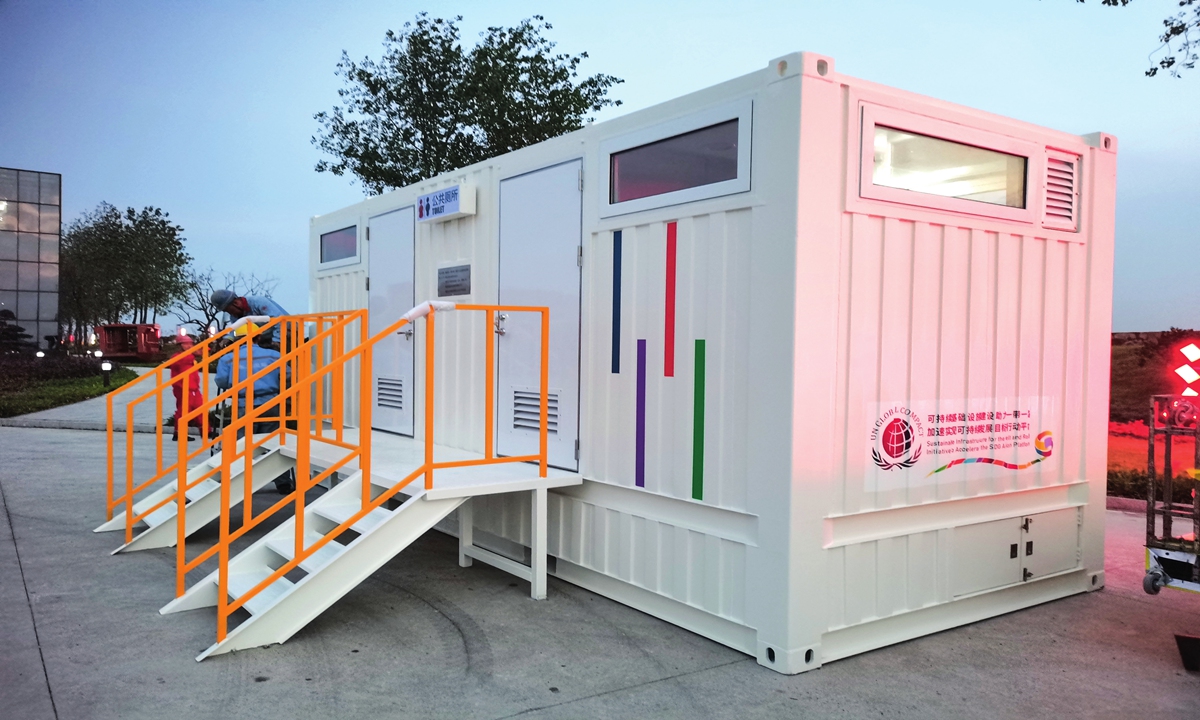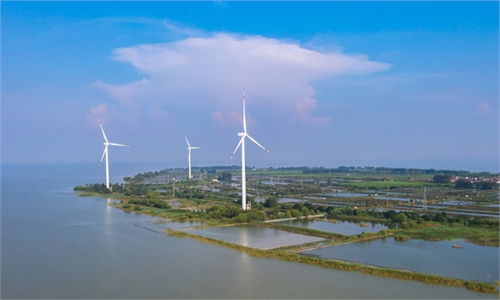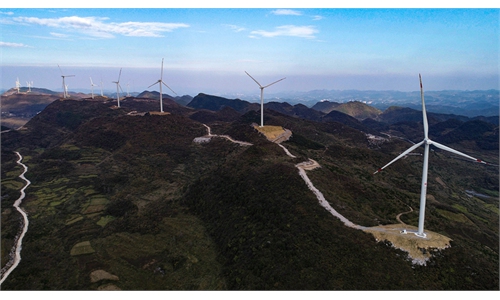Chinese team transforms used cargo containers into eco-friendly toilets for BRI countries

An eco-friendly toilet made from a used cargo container is seen in East China's Jiangsu Province on October 22, 2021. Photo: Courtesy of the United Nations Global Compact
Recently, a brand new toilet was transported to a village in Funing county, Southwest China's Yunnan Province, as part of China's efforts to improve public health and sanitation facilities in rural areas that had just eradicated extreme poverty and are gearing toward rural revitalization. And soon, similar toilets may arrive in many countries along the Belt and Road Initiative (BRI).
In a sense, the toilet is not really new. It was made from a recycled cargo container - and a product of the first project incubated by the "Sustainable Infrastructure for the BRI to accelerate the Sustainable Development Goals (SDGs)" Action Platform under the United Nations Global Compact.
The project is developed to address the urgent global challenges facing people living in rural areas to improve their access to basic public health and sanitation facilities, starting from a clean, green and durable toilet, said Liu Meng, head of the Asia Pacific Networks of the UN Global Compact, told the Global Times on Thursday.
As the world places greater emphasis on sustainable development with the planet facing the grim challenge of an escalating climate crisis, this pilot project has been designed to be replicated along less developed parts along the BRI, project designers and sponsors said.
According to a new report from the WHO and the UNICEF in July, billions of people around the world will still be unable to access safely managed household drinking water, sanitation and hygiene services in 2030, unless the rate of progress quadruples. In 2020, nearly half the world's population lacked safely managed sanitation.
Cargo containers, with a service life of over 50 years, were remolded into water-saving or water-free eco-friendly toilets by COSCO Shipping Group and the design and technology partner Tsinghua University, which are solution providers to the project.
The plan creates a mini version of a circular economy incorporating several sustainable features, such as no or reduced water usage, self-sufficient off-grid solar powered infrastructure, and composting for sustainable agriculture.
The biggest advantage of using the container as the main body of the structure is its sturdy and durable features, large expandable space, and ability to be easily transported, Chen Jianjun, a manager at Dong Fang International Container (Qidong) Co under COSCO Shipping Group, told the Global Times.
"Our ecological container toilets are designed based on the ISO standard container size, and are able to be transported to plains, mountainous areas or overseas by road or sea," he said.
"The water-proof, anti-corrosion, insect-proof, and heat-preservation characteristics are good enough to cope with most of geographical forms and climatic environments regardless of where it is produced," Chen noted.
The pilot project in Yunnan is currently testing water-saving toilets. During the next phase of the pilot program, water-free eco-friendly toilets will be tested in other settings and adopt a wider range of applications.
However, "we do face some challenges during the trial in Funing, which was lifted from poverty not that long ago. For example, we must consider factors, including the municipal power grid, water network, geologic characteristics and local environment," Chen said.
Global contribution
However, thanks to efforts by Chinese firms, the toilets, which are currently under test, could be delivered to countries along the BRI.
"Chinese companies are important players in making a positive contribution. We have seen it around the world, especially in developing countries. A large scope of health-related infrastructure, including hospitals, community clinics and water reservoirs, have been invested and built by Chinese companies as part of the South-South Cooperation framework and other multilateral partnerships. They have contributed to public health facilities of partner countries," said Liu, the UN Global Compact official.
However, she noted that contributing to soft infrastructure such as capacity building, technological support, sharing expertise and know-how, exchanging successful experiences and lessons are equally important as to contribute hard infrastructure such as roads, bridges, schools among others.
"This has been increasingly emphasized and adopted by Chinese companies and investors," Liu said.
Since the founding of the BRI Action Platform on Sustainable Infrastructure, a number of Chinese companies actively participated and contributed to the efforts on enhancing sustainable infrastructure investments and project constructions. The companies include China Development Bank, SINOPEC, China National Petroleum Corporation, LONGi Solar and COSCO Shipping among others.
"We observed an increasing number of Chinese companies are actively participating in climate actions and sharing their best practices on the global platform such as COP26 that is right around the corner to be inaugurated in Glasgow. We are right here to support Chinese businesses, or firms from other countries, to continue their critical role in advancing the SDGs," Liu told the Global Times, referring to the UN climate conference in Glasgow, the UK.



